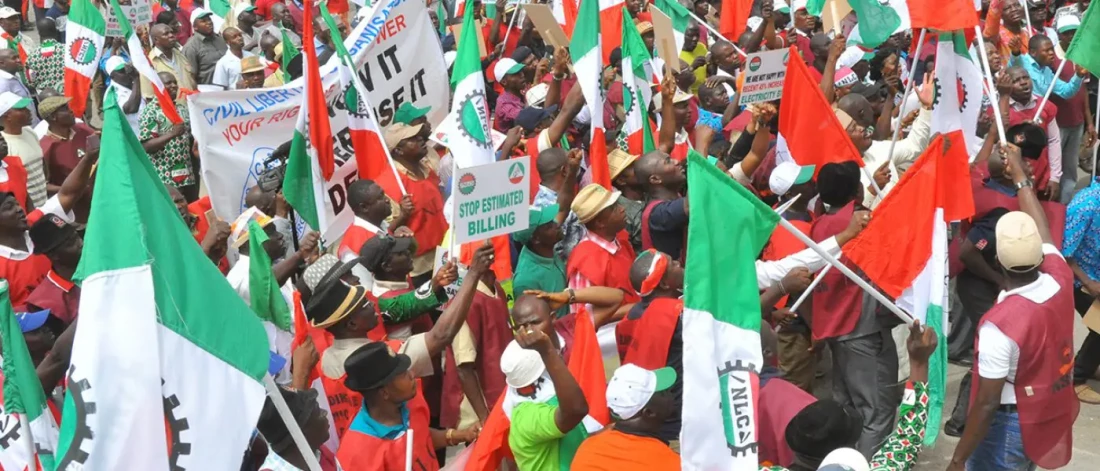The Federal Government and Organised Labour are at loggerheads over the looming threat of a nationwide strike, scheduled to begin in 14 days, due to the alleged failure of the government to fulfill agreements reached with the Nigeria Labour Congress (NLC) and the Trade Union Congress (TUC) in October 2023.
Minister of Information and National Orientation, Mohammed Idris, appealed to the unions to exercise patience and engage in dialogue with the government to address their concerns. He emphasized the need to avoid a strike at a critical time for the nation’s progress and development.
Following the removal of fuel subsidy by President Bola Tinubu in May 2023, labour unions negotiated a 16-point agreement with the Federal Government to alleviate the impact of the subsidy removal on workers. This included a commitment to pay N35,000 to all federal workers starting from September, among other measures.
Despite the agreements, the NLC and TUC accused the government of failing to fulfill its promises, leading to the threat of a nationwide strike. The unions highlighted the dire economic consequences of policies such as the IMF/World Bank-induced hike in the price of Premium Motor Spirit (PMS) and the devaluation of the naira.
They expressed concern over widespread hunger, eroded purchasing power, and increased insecurity, demanding urgent action from the government to address these issues.
Labour leaders gave the government a 14-day ultimatum to honor its commitments, warning of industrial action if their demands are not met. Affiliated unions, including the Nigerian Union of Banks, Insurance and Finance Institution Employees and the Air Transport Senior Staff Association of Nigeria, signaled their readiness to join the strike.
Meanwhile, the Jama’atu Nasril Islam (JNI) urged the government to address the economic hardship facing Nigerians, emphasizing the need for urgent intervention to mitigate the suffering of citizens.
In response, the Niger State House of Assembly initiated moves to establish a Price Control Board to regulate the prices of essential commodities, aiming to address the soaring costs affecting consumers.
Human rights lawyer, Femi Falana, SAN, also weighed in, explaining his legal action against the Federal Government over rising commodity prices. Falana called for the enforcement of existing laws, such as the Price Control Act, to ensure fair pricing and protect consumers’ interests.
